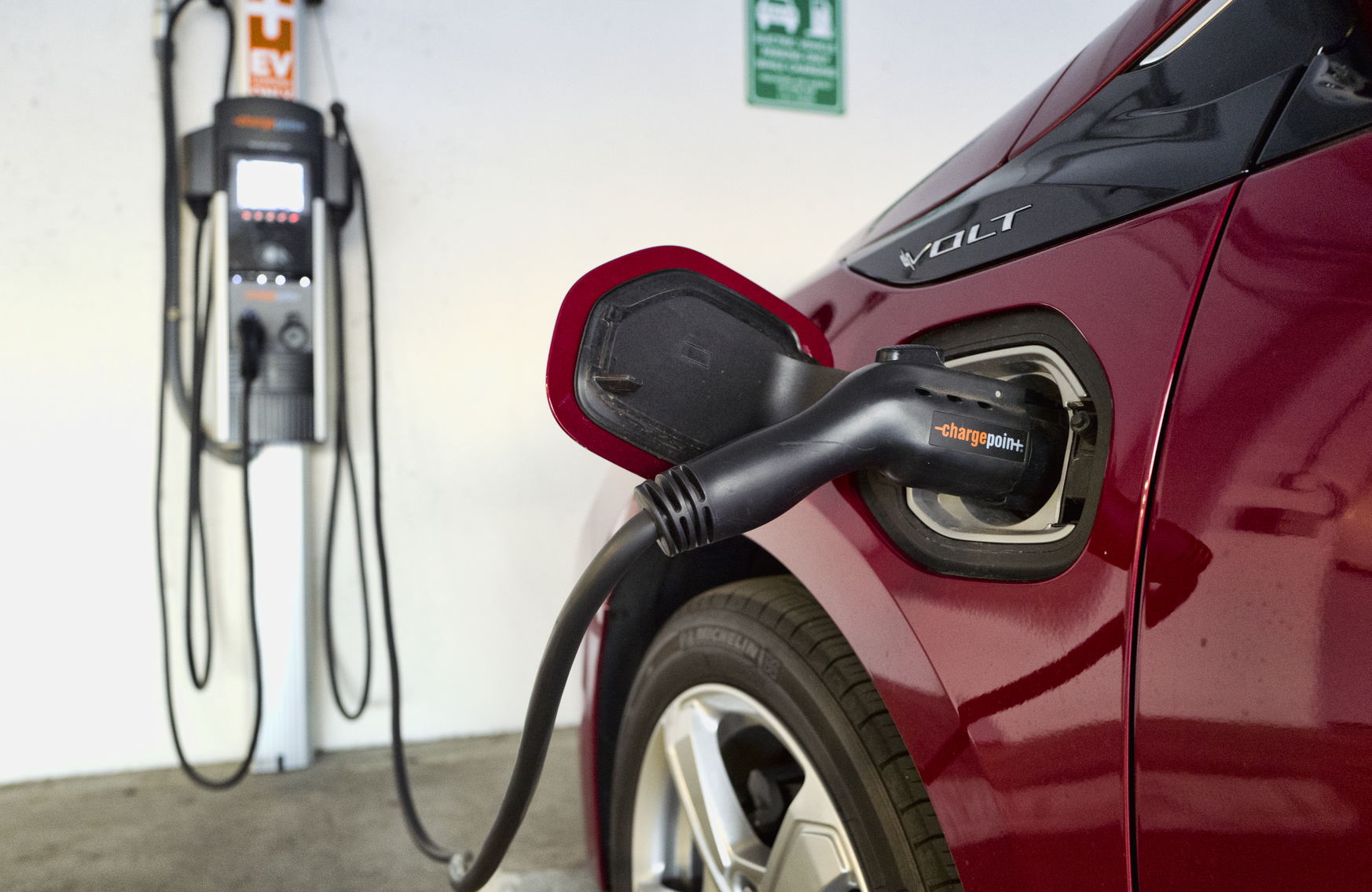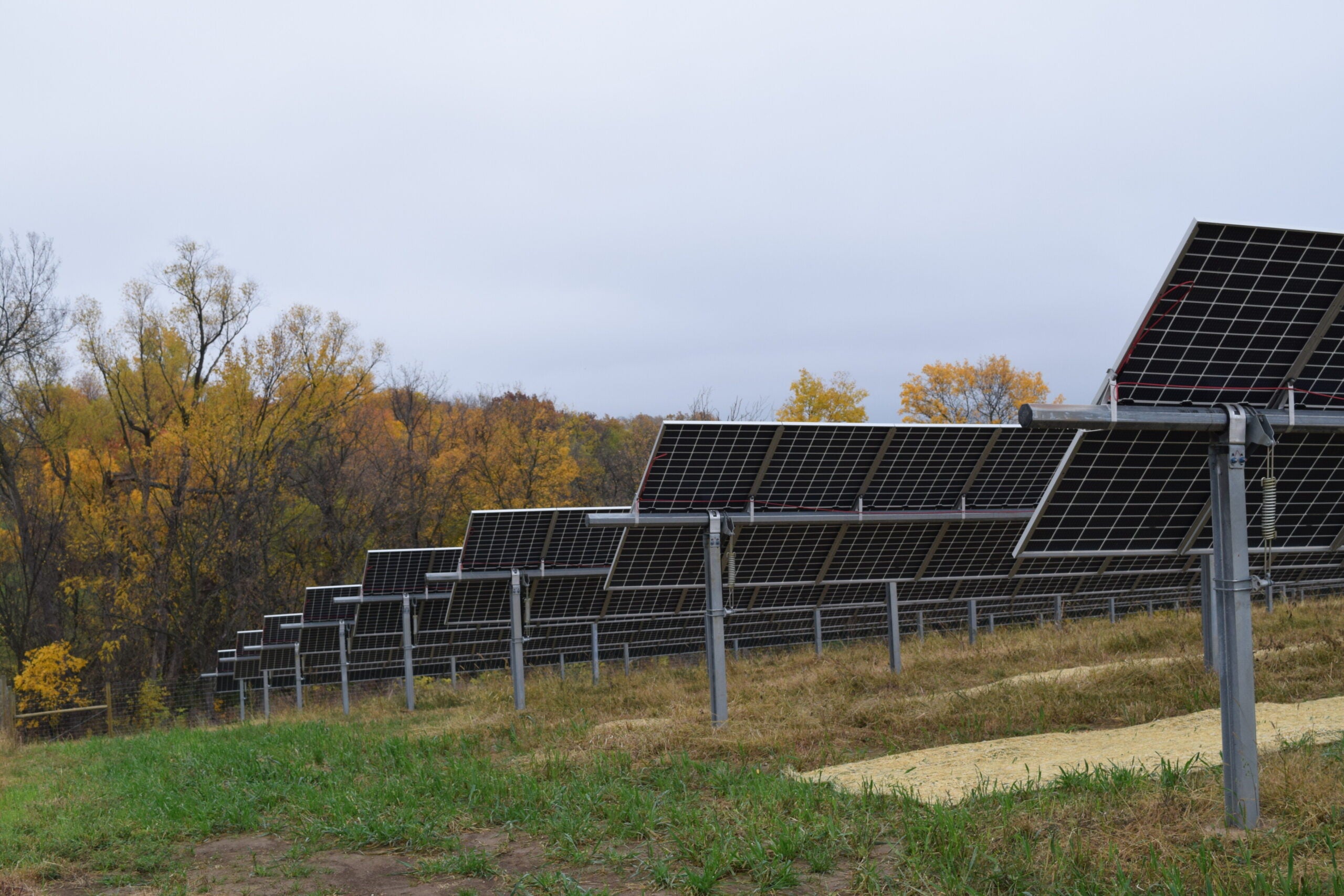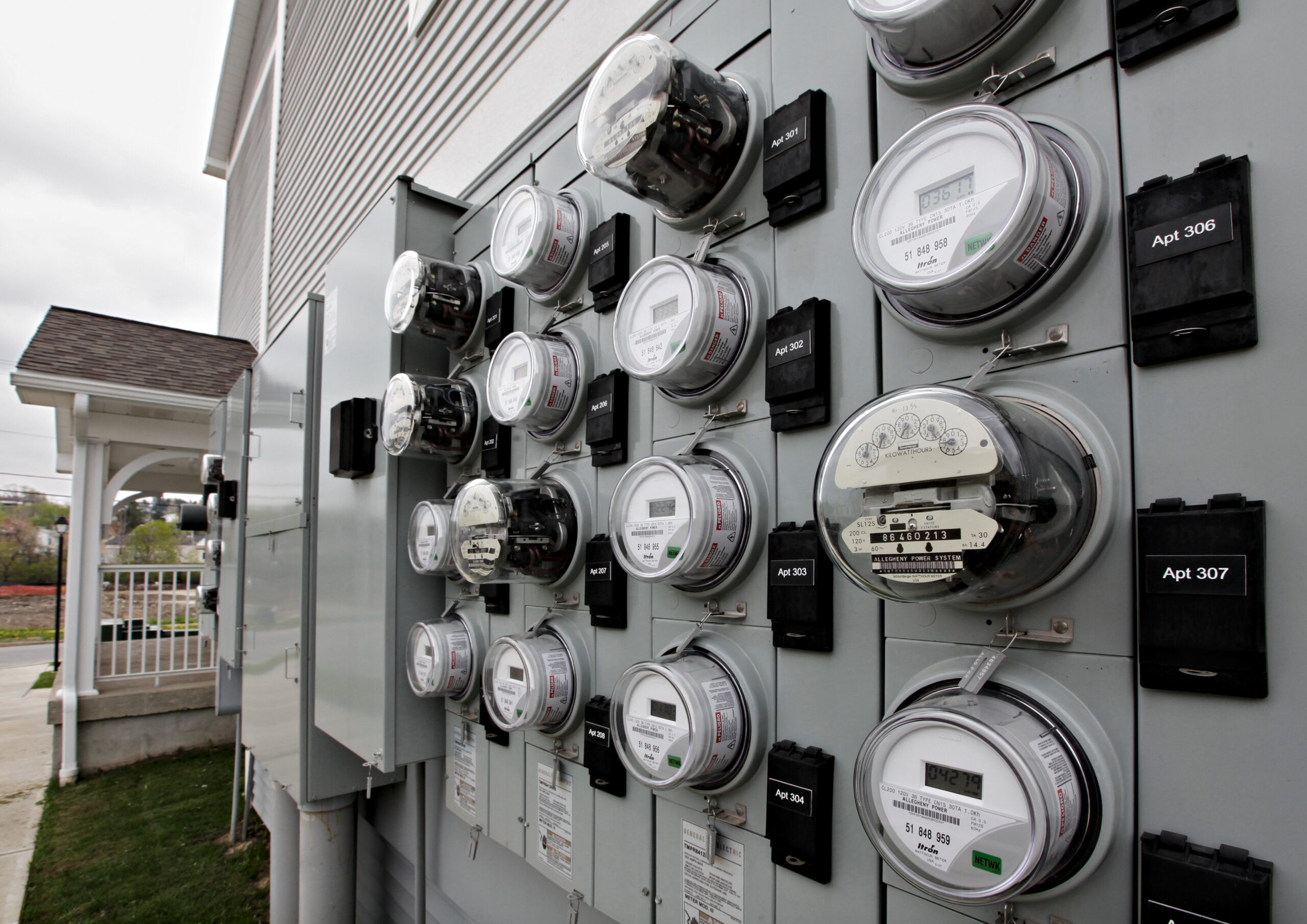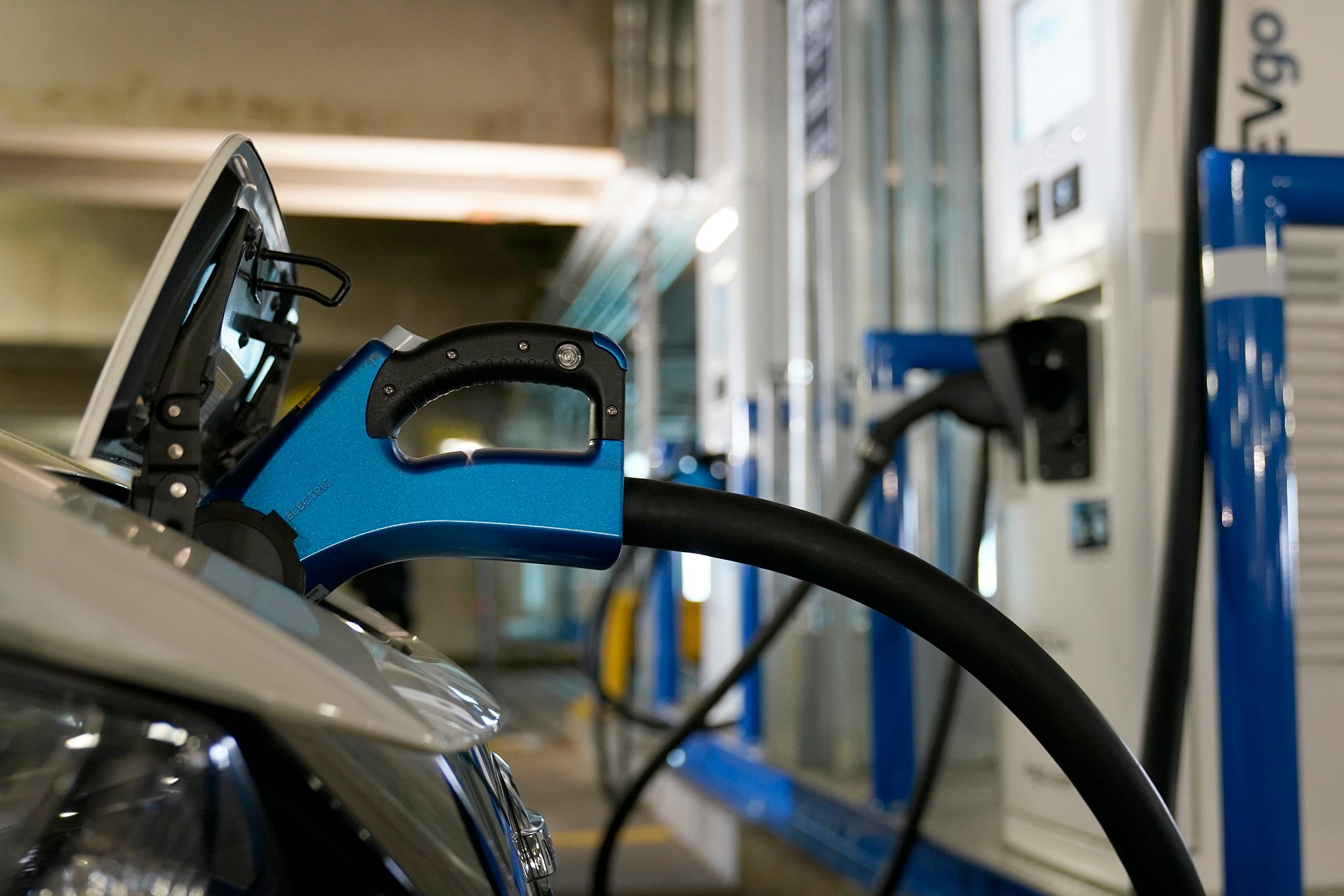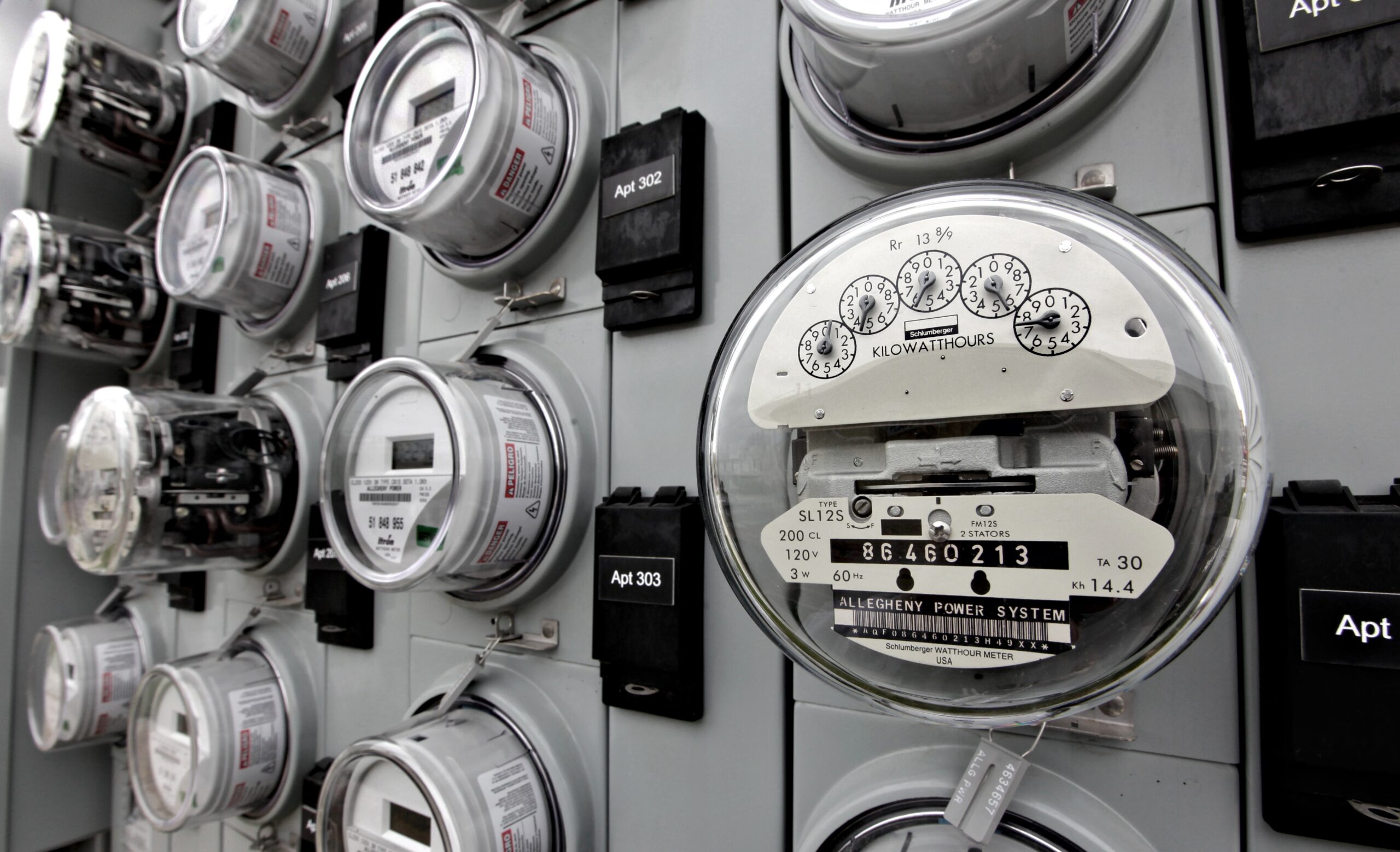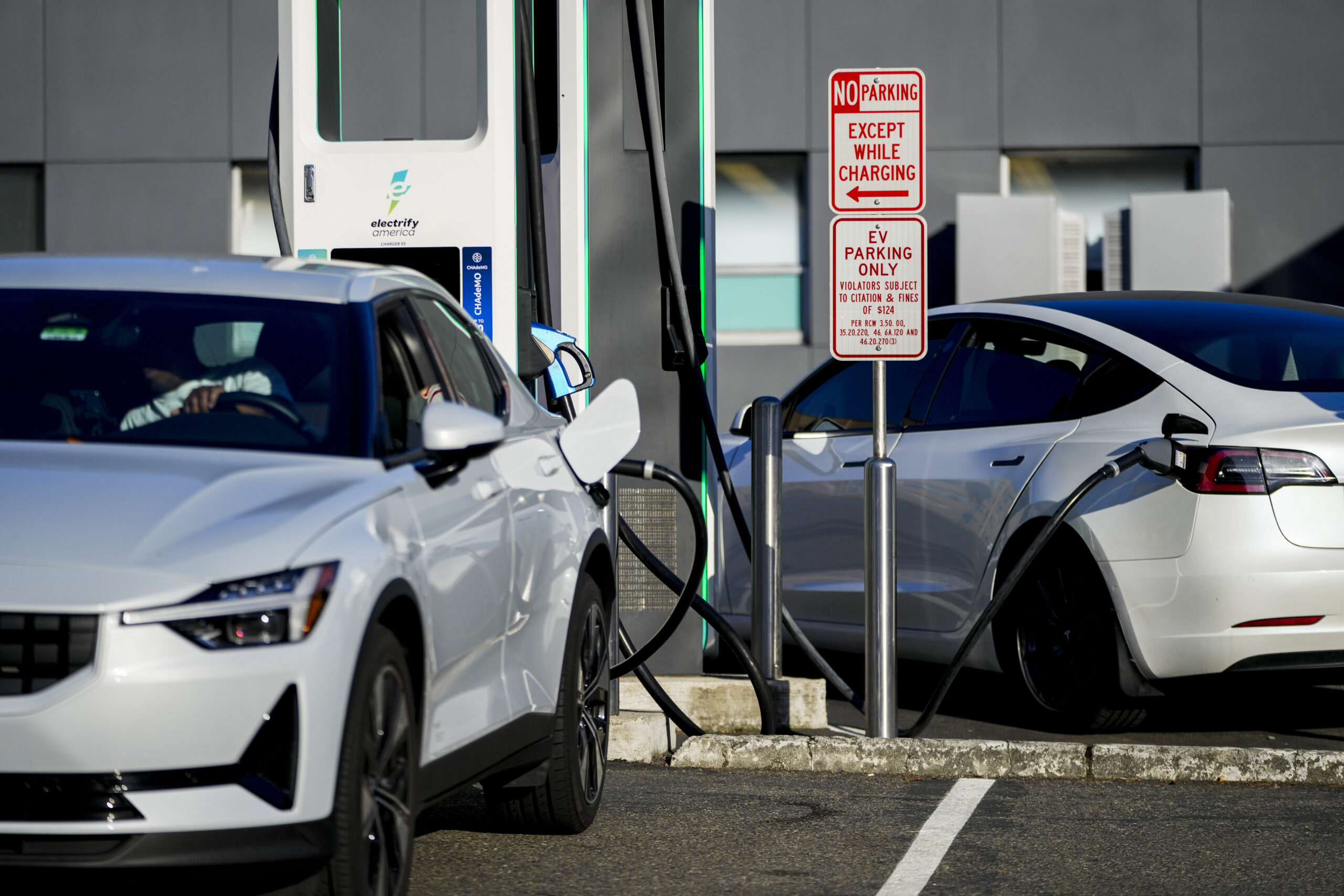Xcel Energy customers will have the option to have the utility install and maintain electric vehicle charging stations in their homes or businesses under a new program recently approved by the Wisconsin Public Service Commission.
“The way it works is a customer would ask us to install an electric vehicle charger in their garage, and they would either pay us up front for that — the cost of the charger or installation — or they could pay us over time for that charging equipment,” said Tyrel Zich, principal rate analyst for Xcel.
Zich said the program lowers the cost for ratepayers to charge their electric vehicles because it uses smart charging equipment that can be programmed to charge the vehicle during overnight hours when electric costs are lowest.
News with a little more humanity
WPR’s “Wisconsin Today” newsletter keeps you connected to the state you love without feeling overwhelmed. No paywall. No agenda. No corporate filter.
“We see electrification of the transportation industry to benefit both the environment and our customers,” said Zich.
The Xcel program is only the second to receive approval from state regulators, according to the commission. The PSC approved a pilot program proposed by Madison Gas & Electric as part of a rate increase several years ago.
Transportation currently accounts for the greatest portion of the nation’s total greenhouse gas emissions, according to the U.S. Environmental Protection Agency. Utilities and state regulators are considering more electric vehicle charging programs as sales have grown over time.
The Edison Electric Institute, an association of investor-owned electric companies, reported in its June update on electric transportation that 24 states have approved electric company charging infrastructure investments as of May this year.
There are now nearly 1.5 million electric vehicles across the U.S. and that figure is expected to grow to more than 18 million by 2030, according to the association. Data from the Wisconsin Department of Transportation shows there were 4,468 electric vehicles out of more than 6.1 million vehicles on the state’s roads last year.
Zich acknowledges the electric vehicle market is fairly new, but Xcel expects it to grow in the future. They estimate around 200 customers will take advantage of the program after it gets up and running later this year. Xcel said the cost of the program would be covered by people who participate and wouldn’t affect other ratepayers.
The PSC launched an investigation last year to consider current and future policies surrounding electric vehicles, as well as infrastructure to support them. Limited charging infrastructure was the most commonly cited barrier among a variety of groups who submitted comments.
More than 80 percent of people charge their electric vehicle at home because it’s convenient and inexpensive. The charging infrastructure is most important for traveling because most electric cars go around 200 miles on a charge, according to Jane McCurry, electric vehicles program manager with RENEW Wisconsin.
“Especially here in Wisconsin, where we have communities that are big tourist destinations during the summer,” said McCurry. “Thinking about how drivers can get anywhere that they want to go in Wisconsin and drive there confidently in their electric car is going to be increasingly important.”
Wisconsin has around 110 fast-charging stations and 400 “Level 2” public charging stations, according to RENEW Wisconsin. Level 2 charging stations, which provide about 20 miles for an hour of charge, can cost from around $1,000 at home to $5,000 for public stations. McCurry said fast-chargers can cost $75,000 or more.
Tom Content, executive director for the Citizens Utility Board, said another concern with electric vehicles is making sure customers aren’t saddled with extra costs while implementing such programs. He added questions remain over the role that the private sector, utilities and regulators will play in development of infrastructure to support them.
“But by and large, we see there can be a role where it actually can help reduce costs over time for people,” said Content. “If you set up a system where people charge at night, when the price of energy is low, then that helps not create burdens for other customers down the road.”
WEC Energy Group, which owns We Energies and Wisconsin Public Service, is among utilities that have proposed programs for customers to install electric vehicle charging equipment. But regulators rejected their plan last fall because it would have used ratepayer money to subsidize the program. WEC contended the program would have saved money for all customers by encouraging electricity use during off-peak hours.
Wisconsin Public Radio, © Copyright 2025, Board of Regents of the University of Wisconsin System and Wisconsin Educational Communications Board.

